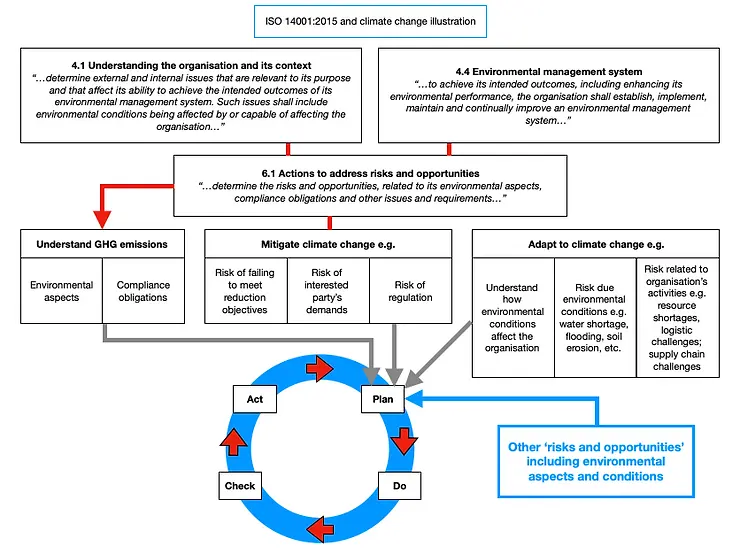Leading the Charge: How ISO 14001 Drives Environmental Responsibility for a Sustainable Future.

In a race against time to combat impending climate catastrophes by 2030, businesses are being urged to join the global battle against climate change. The United Nations Intergovernmental Panel on Climate Change emphasises the urgent need for unprecedented societal changes to avert devastating levels of global warming.
Surprisingly, businesses—often seen as contributors to environmental woes—can serve as positive agents of change.
Enter ISO 14001:2015—an instrumental framework empowering companies to establish robust environmental management systems. This internationally recognized standard not only ensures companies' adherence to environmental regulations but also underscores their commitment to curbing climate change while ensuring profitability.
The critical link between ISO 14001 and climate change mitigation lies in the standard's adeptness at addressing key environmental concerns. With a focus on energy efficiency, environmental compliance, and carbon footprint reduction, ISO 14001 enables firms to take concrete actions to control environmental impacts and comply with regulations.
Moreover, this certification serves as a badge of environmental credibility, assuring stakeholders of a company's commitment to sustainability. But how exactly does ISO 14001 align with climate change mitigation and adaptation?
The Paris Agreement serves as a global commitment to curb greenhouse gas emissions and limit global temperature increases to below 2 °C, with a target of 1.5 °C. Companies adopting ISO 14001 can directly tackle these climate challenges by adapting their management systems to address environmental changes beyond just climate change, encompassing issues like loss of ecosystem services and biodiversity.
ISO 14001 also equips companies to determine the costs and benefits associated with their greenhouse gas emissions, aiding in assessing the economic value of climate-related actions. Additionally, the standard directly intersects with eight out of 17 UN Sustainable Development Goals (SDGs), including clean water, climate action, and responsible consumption, aligning with both environmental mitigation and adaptation efforts.
The framework covers a spectrum of environmental concerns, from proactive initiatives to protect the environment and pollution prevention to continuous improvement in environmental performance. By embracing ISO 14001, companies commit to a strategic environmental management approach, integrating environmental considerations into their core business strategies.
In essence, ISO 14001 offers businesses a transformative platform to be agents of change in the fight against climate change, aligning corporate goals with global sustainability objectives. For companies invested in combatting climate change, adopting and effectively operating under ISO 14001 is an indispensable step towards fostering environmental responsibility and securing a sustainable future for generations to come.
A message from our sponsors, The Ideas Distillery:
If you would like to look at how to implement an ISO 14001 environmental management system, then simply contact us.
Or, if you want to see what's involved in more detail, then get a completely free, no obligation, totally tailored ISO Gap Analysis for your business (only available to UK businesses).

Comments